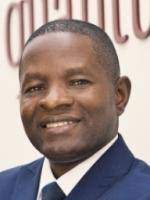Economists and development experts from across the world have stressed the need for African leaders to sustain annual growth rates of at least 7-10 percent over the next 40 years in the continent if the development targets of Agenda 2063 are to be achieved.
The Agenda 2063 set by the African Union is Africa’s roadmap and master plan for transforming the continent into the global powerhouse of the future.
The analysts made this strong recommendation at a session organized by the Africa Union Commission (AUC) and the African Development Bank (AfDB) held on the sidelines of the 36th African Union Summit last Friday in Addis Ababa, Ethiopia.
At the forum, the study on ‘Key Actions to Drive Inclusive Growth and Sustainable Development in Africa’ was commissioned by the Chairperson of the AUC, Moussa Faki Mahamat and the AfDB President, Dr. Akinwumi Adesina.
According to the AfDB and AUC, the study will undertake a deep analysis of Africa’s growth trajectory and identify key actions for Africa to double its growth rates from the current level for the next 40 years.
Making his remarks during the session, the Acting Chief Economist and Vice President of the AfDB, Prof Kevin Urama, outlined the rationale for the study, noting that “Africa’s current growth performance is insufficient to eradicate poverty and achieve the Sustainable Development Goals (SDGs) and Agenda 2063 as encapsulated in the African Development Bank’s ‘High 5’ priorities.
“No African country has achieved consistent growth rates for decades-long growth. Why the inconsistencies, and what are the drivers of rise and fall?
“We need new financial models’ novel approaches to address them, Redistribution of resources is inevitable”, Urama added.
Similarly, Columbia University professor and economist, Jeffrey Sachs, pointed out that increasing and sustaining investment from the current level of 20% of GDP to 40% would require “a deep quantitative exercise and a development strategy promoted by strategists.”
Speaking during the session, the Deputy Executive Secretary and Chief Economist at the United Nations Economic Commission for Africa, Hanan Morsy, pointed out that Africa needed macro-economic stability.
According to her, African continent must scale up the production value chain, not just export raw materials to achieve the target.
The study will take a comprehensive look at the checkered growth trajectory of African economies and find the reasons for flat lining.






